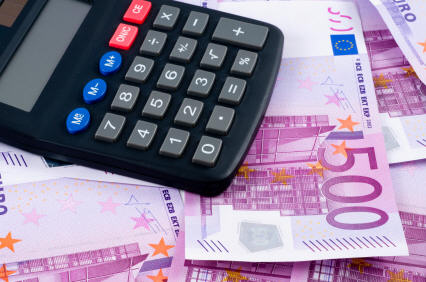The euro continues to remain firmly under the spotlight. Recently it began with a downgrade for Italy’s credit rating by Standard & Poor, bringing back fears of contagion and leading to a sharp fall in equity markets round the globe.
The euro weakened against most major currencies – the US dollar being the main beneficiary, as investors avoided the usual safe havens of the Japanese yen and the Swiss franc due to the recent central bank intervention.
The move against the euro was compounded following a particularly weak showing in German investor confidence, which fell to its lowest level in two and a half years. This is further evidence of a global economic slowdown and suggests even the biggest economies can’t avoid the risk of a double-dip recession.
 Clearly something needs to be done to shore up the ailing peripheral countries in the euro area and stop the debt crisis spreading to the larger economies; and this is exactly what was discussed at a G20 meeting. The proposal put forward was a controlled Greek default allowing them to write off 50% of their government debt and expanding the European Financial Stability Fund to upwards of €2 trillion (from €440 billion). But it was all just talk at and more information will need to be forthcoming if they expect market confidence to return.
Clearly something needs to be done to shore up the ailing peripheral countries in the euro area and stop the debt crisis spreading to the larger economies; and this is exactly what was discussed at a G20 meeting. The proposal put forward was a controlled Greek default allowing them to write off 50% of their government debt and expanding the European Financial Stability Fund to upwards of €2 trillion (from €440 billion). But it was all just talk at and more information will need to be forthcoming if they expect market confidence to return.
As the weeks progressed hopes were high as Germany unanimously voted to expand the Euro-area rescue fund’s firepower. These changes will be in place by mid-October and with European finance ministers meeting to discuss the acceleration of the implementation of a permanent rescue fund for the area.
There had never been much doubt about the outcome of the vote but it still helped the euro recover some of the ground it has given up over recent weeks. There was also comment from German Finance Minister Wolfgang Schaeuble that the ESFS still has over 90% of its capacity available (€396bn) after the bailouts of Ireland, Portugal and of course Greece, which gave further comfort. UK consumer sentiment showed an upturn for the first time in 4 months and you could be forgiven for thinking there might be a light at the end of the tunnel.
But we all know better than that don’t we! As the week came to a close, Asian stock markets declined and worries about Europe have returned. The euro had given back all of the ground it gained and some commentators are now saying they want a rescue fund starting with a T rather than a B. Matters were not helped with the release of the worst German Retail Sales in August for over four years.
Looking ahead, expect this euro saga to continue for some time to come. There’s no easy solution to their problems and the sooner they accept that and its consequences the better for the euro and the world.